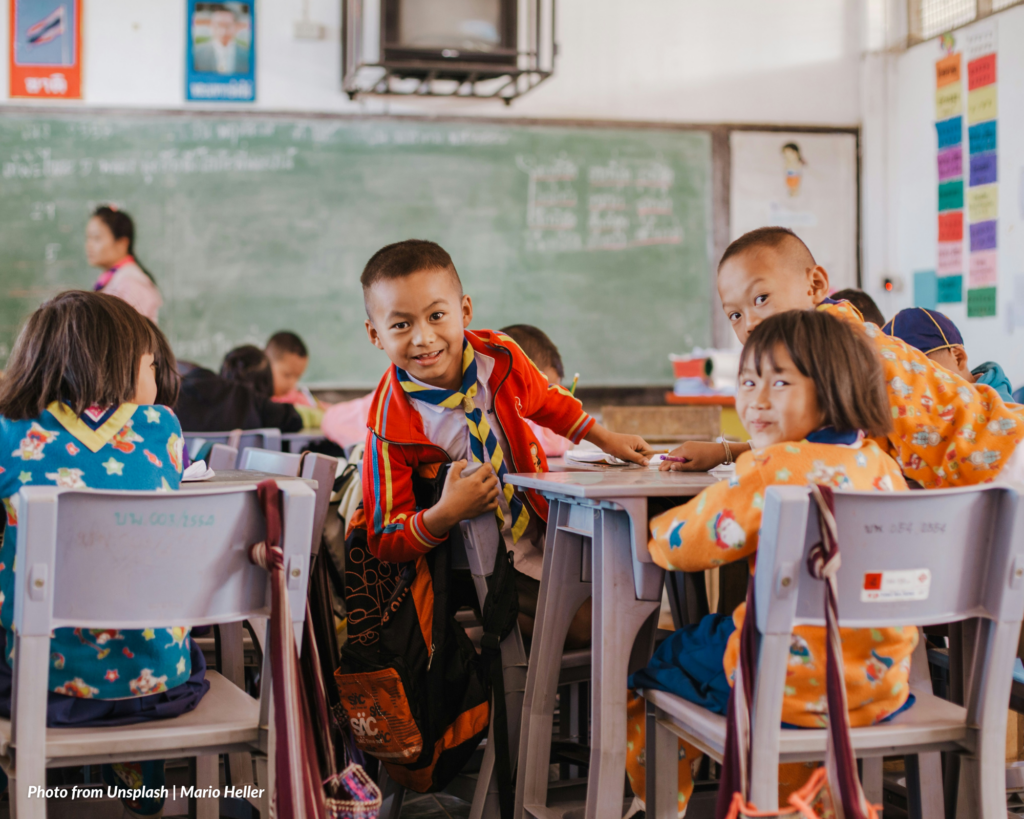
Photo from Unsplash | Mario Heller
The following post does not create a lawyer-client relationship between Alburo Alburo and Associates Law Offices (or any of its lawyers) and the reader. It is still best for you to engage the services of a lawyer or you may directly contact and consult Alburo Alburo and Associates Law Offices to address your specific legal concerns, if there is any.
Also, the matters contained in the following were written in accordance with the law, rules, and jurisprudence prevailing at the time of writing and posting, and do not include any future developments on the subject matter under discussion.
AT A GLANCE:
A new law was enacted discontinuing the use of the mother tongue as medium of instruction for young learners from kindergarten to the first three years of elementary education.
Republic Act No. 10533 otherwise known as “An Act Enhancing the Philippine Basic Education System by Strengthening its Curriculum and Increasing the Number of Years for Basic Education, Appropriating Funds Therefor and for Other Purposes” was enacted in 2012. Section 4 thereof mandates the use of regional or native languages as the medium of instruction, teaching materials, and assessment for kindergarten and the first three (3) years of elementary education.
In 2024, the Philippine Congress enacted Republic Act No. 12027 discontinuing the use of the mother tongue as medium of instruction for young learners and mandating the reversion to the use of Filipino and English language.
The principles and framework of the Mother Tongue-Based Multilingual Education (MTB-MLE) as embodied under Section 5(f) of Republic Act No. 10533 may be applied in monolingual classes provided that the mother tongue to be used shall comply with following requirements:
- an official orthography developed and published by the Komisyon sa Wikang Filipino (KWF);
- officially documented vocabulary published by the MWF such as glossary, dictionary, encyclopedia, or thesaurus;
- literature on languages and culture, such as big books, small books, picture stories, or wordless picture books;
- grammar book;
- availability of teachers in the school who speak and are trained to teach in the Mother Tongue.
The law also mandates the Department of Education (DepEd), in consultation with KWF, to develop a language mapping policy and implement a language mapping framework to properly identify and classify learners based on their Mother Tongue in order to systematically determine the existence of monolingual classes per year.
Three (3) years after the effectivity of R.A. 12027 and every three (3) years thereafter, the DepEd shall conduct a review of the optional implementation of the MTB-MLE Program in monolingual classes, including learner assessment, teacher recruitment and matching, development of learning resources published in the Mother Tongue, capacity-building efforts for teachers, and funding requirements for the program. The report shall be submitted to the President, the Senate of the Philippines, and the House of Representatives not later than June 30 following the year of review. It shall also include recommendations to address gaps in the law and/or its implementation.
The report shall further include recommendations on whether to continue or discontinue the optional use of the Mother Tongue as medium of instruction in monolingual classes based on the review conducted by the DepEd.
Any violation of the provisions of the law shall be subject to administrative sanctions.
RELATED ARTICLE:
Can basic laws be taught in basic and secondary education?
Click here to subscribe to our newsletter
Alburo Alburo and Associates Law Offices specializes in business law and labor law consulting. For inquiries regarding legal services, you may reach us at info@alburolaw.com, or dial us at (02)7745-4391/ 0917-5772207/ 09778050020.
All rights reserved.


